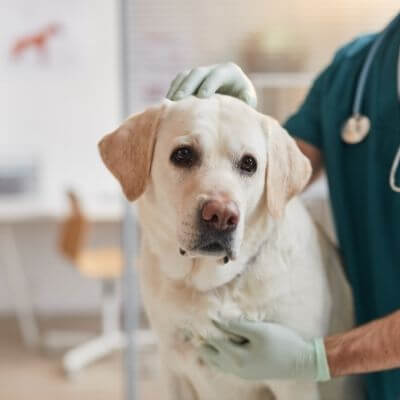Welcome to Forest Hills Veterinary Clinic
Senior Pet Care
Senior pet care services are comparable to those for younger pets, but they are more comprehensive and vital. Learn more below.
Veterinary Services
Senior Pet Care

Geriatric pets should have semi-annual veterinary checkups rather than annual visits to detect and treat signs of disease or other problems early. Senior pet checkups are comparable to those for younger pets, but they are more thorough, and they may involve dental treatment, bloodwork, and particular checks for physical symptoms of diseases that are more common in senior animals.
Possible behavior changes in older pets:
- Increased reaction to sounds
- Increased vocalization
- Confusion
- Disorientation
- Decreased interaction with humans
- Increased irritability
- Decreased response to commands
- Increased aggressive/protective behavior
- Increased anxiety
- House soiling
- Decreased self-hygiene/grooming
- Repetitive activity
- Increased wandering
- Changes in sleep cycles
Not all potential changes in your older pet will be evident, and a full checkup by our veterinarians at Forest Hills will help discover any underlying abnormalities. Geriatric animals are more likely than humans to acquire diseases like periodontal disease, diabetes, high blood pressure, digestive problems, liver illness, cancer, heart disorders, and renal failure as they age.
Even the existence of one of these health problems might aggravate or cause others. An arthritic pet, for example, may become inactive and gain weight, which might lead to cardiac problems or diabetes. Aside from physical abnormalities, your pet could suffer cognitive issues like dementia. They may appear briefly disoriented, not recognizing you or other family pets, or they may forget where they’ve stashed toys or the food dish. Although cognitive disorders are uncommon, you should seek counsel from our veterinarians as soon as possible.
